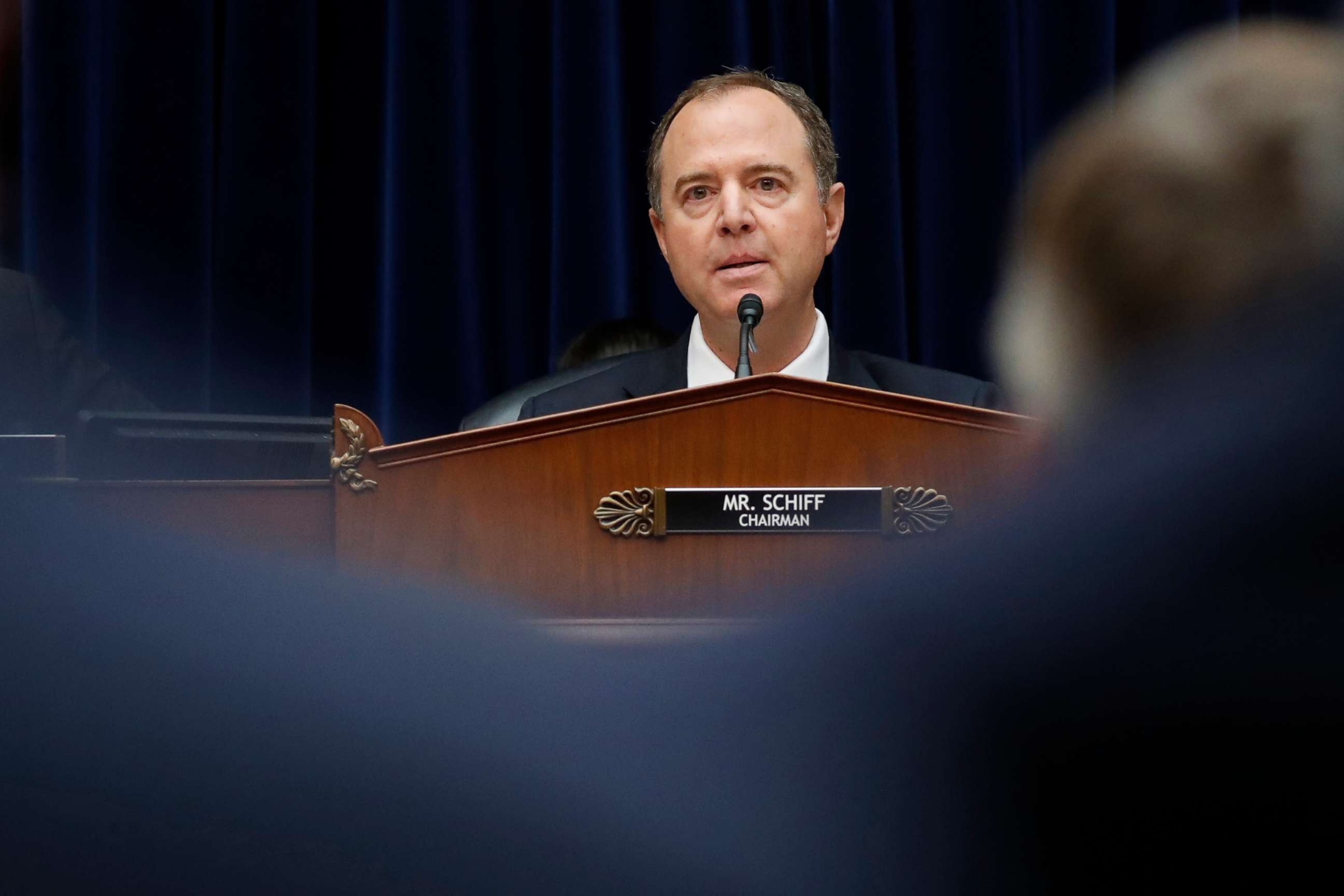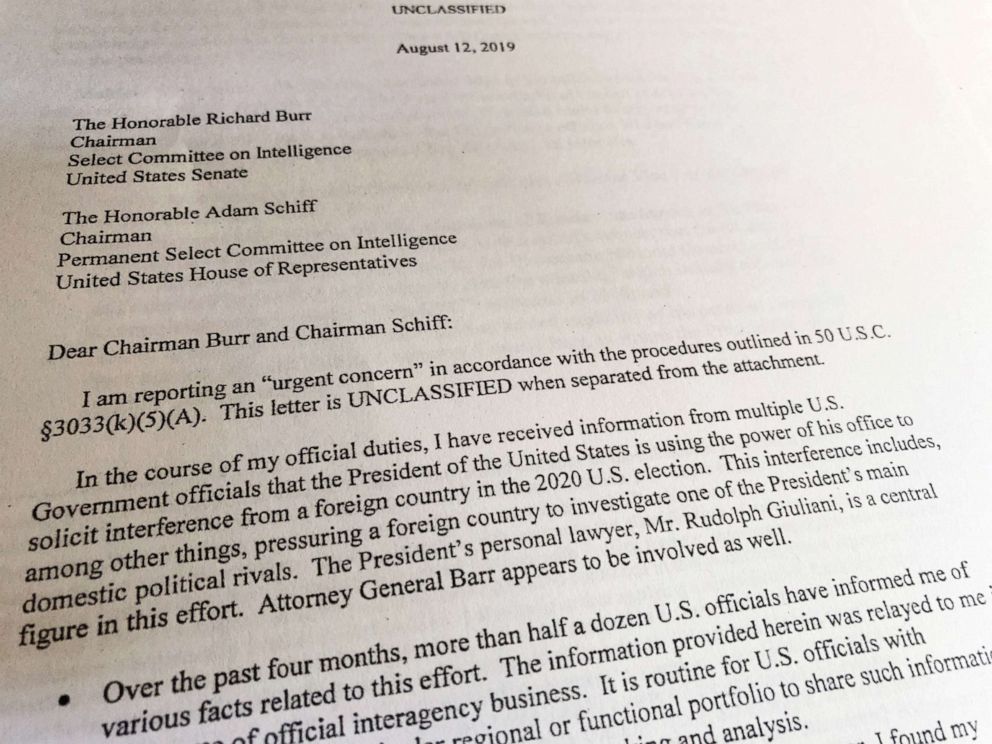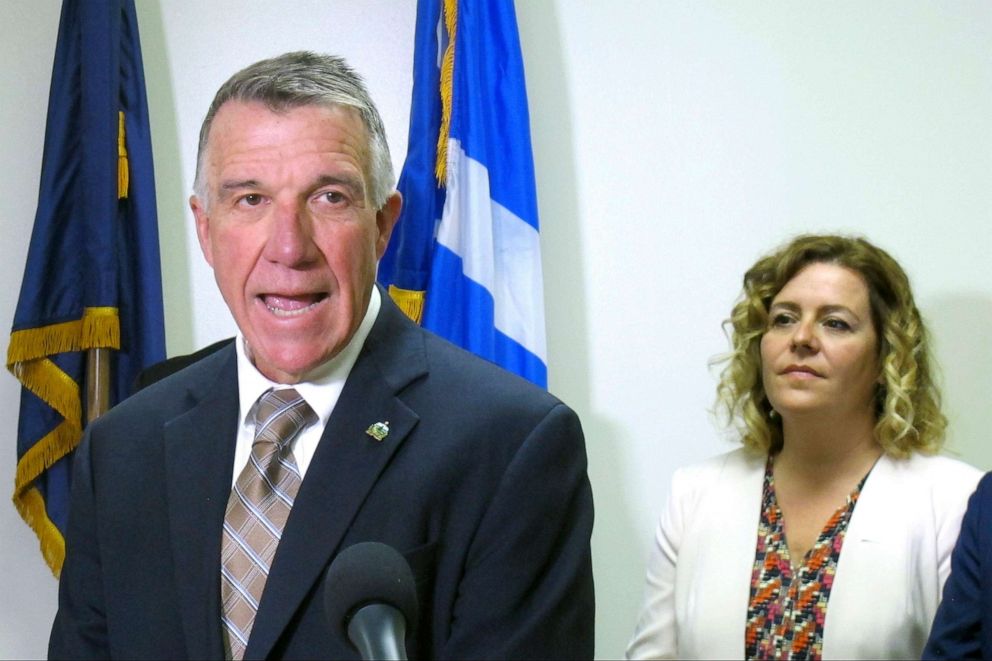The Note: On impeachment, Democrats face challenges of focus and scope
A week where everything changed leaves nothing fixed in place.
The TAKE with Rick Klein
A week where everything changed leaves nothing fixed in place.
Democrats have taken the fateful step of pursuing impeachment without a clear picture of where the path leads. They face immediate and narrow questions: Will they cancel recess? Consolidate efforts into a single select committee? And there are the unfathomably broad ones that extend even wider when President Donald Trump digs in.

Even the opening act in the impeachment drama, where the acting director of national intelligence confirmed the severity of the allegations and said the whistleblower operated in "good faith," raised any number of fresh, potential issues.
We've now learned of a secret White House storage system for politically sensitive transcripts, amid suggestions of a broader Trump administration cover-up and not-so-veiled presidential threats against the whistleblower.
The fact that these are unprecedented circumstances can't be an excuse for making any inquiry indefinite or unlimited. Democrats have kept up a Trumpian pace so far, but that may not be sustainable -- or wise -- given how much the public will be forced to digest.
There's no shortage of reasons for Democrats to want Trump out of office and fast. They can't count on the president to narrow their arguments down.
The RUNDOWN with MaryAlice Parks
A few key takeaways from the whistleblower complaint released to the public on Thursday: First, the whistleblower demonstrates legal knowledge and authority in making the arguments that effectively lay out alleged fact-patterns.
Second, the whistleblower cites sources with precision and admits to gaps in his or her information. For example, the complaint starts, "I was not a direct witness to most of the events described," and later adds, "I do not know which side [the U.S. or Ukraine] initiated the call." On several occasions, the whistleblower makes a distinction between claims learned from U.S. government officials -- presumably working in other agencies – and, half a dozen times, the whistleblower says the information came directly from officials at the White House.

"Multiple White House officials with direct knowledge of the call informed me that after an initial exchange of pleasantries the President used the remainder of the call to advance his personal interests," the whistleblower writes.
Third, the whistleblower's understanding of the July 25 call between Trump and the Ukrainian president was accurately reflected and corroborated in the transcript memo released from the White House. And fourth, on a few occasions, the whistleblower suggested government resources and personnel could have been used to support the president's asks -- for example, when the whistleblower writes that U.S. officials and ambassadors "provided advice to the Ukrainian leadership about how to 'navigate' the demands that the President made."
All this will likely make it harder for the complaint to be discredited.
The TIP with Alisa Wiersema
In Washington, most Republicans are flocking to Trump's defense against a backdrop of allegations tied to the impeachment inquiry. Outside the beltway, at least two GOP chief executives aren't falling in line. On Thursday, Vermont Gov. Phil Scott, who is up for re-election in 2020, said he wasn't surprised by the allegations because he's "watched him over the years." Despite being the first Republican governor to support impeachment proceedings against the president, Scott still urged caution.
"I want this inquiry to be objective, be neutral, and not based on political motivation about the next election," he said at a press conference. "Let's just get the facts."

Meanwhile in Massachusetts, Gov. Charlie Baker called the fallout "a deeply disturbing situation" and said, "the proper role and responsibility for Congress at this point is to investigate it and get to the bottom of it."
Scott and Baker are part of a small group of Republican governors balancing politics with blue state electorates. While their comments open the door for others to pile on, they also offer a potential road map for 2020 hopefuls to get a read on more moderate voters ahead of next year's election.
THE PLAYLIST
ABC News' "Start Here" podcast. Friday morning's episode features ABC News Senior Washington Reporter Devin Dwyer and ABC News Chief Legal Analyst Dan Abrams who discuss what's in the whistleblower complaint that was released Thursday. Then, ABC News Senior Congressional correspondent Mary Bruce and ABC News Chief White House correspondent Jonathan Karl break down the testimony of acting Director of National Intelligence Joseph Maguire. http://apple.co/2HPocUL
ONE MORE THING
"Around the Table with Cory Booker" The Democratic presidential candidate and U.S. senator invited ABC News Correspondent Lindsey Davis and three undecided voters to Vonda's Kitchen in his hometown of Newark, New Jersey, for the second installment of ABC's "Around the Table," a series bringing together presidential candidates and voters for a candid conversation.
WHAT YOU NEED TO KNOW THIS WEEKEND
Download the ABC News app and select "The Note" as an item of interest to receive the day's sharpest political analysis.
The Note is a daily ABC News feature that highlights the day's top stories in politics. Please check back Monday for the latest.




